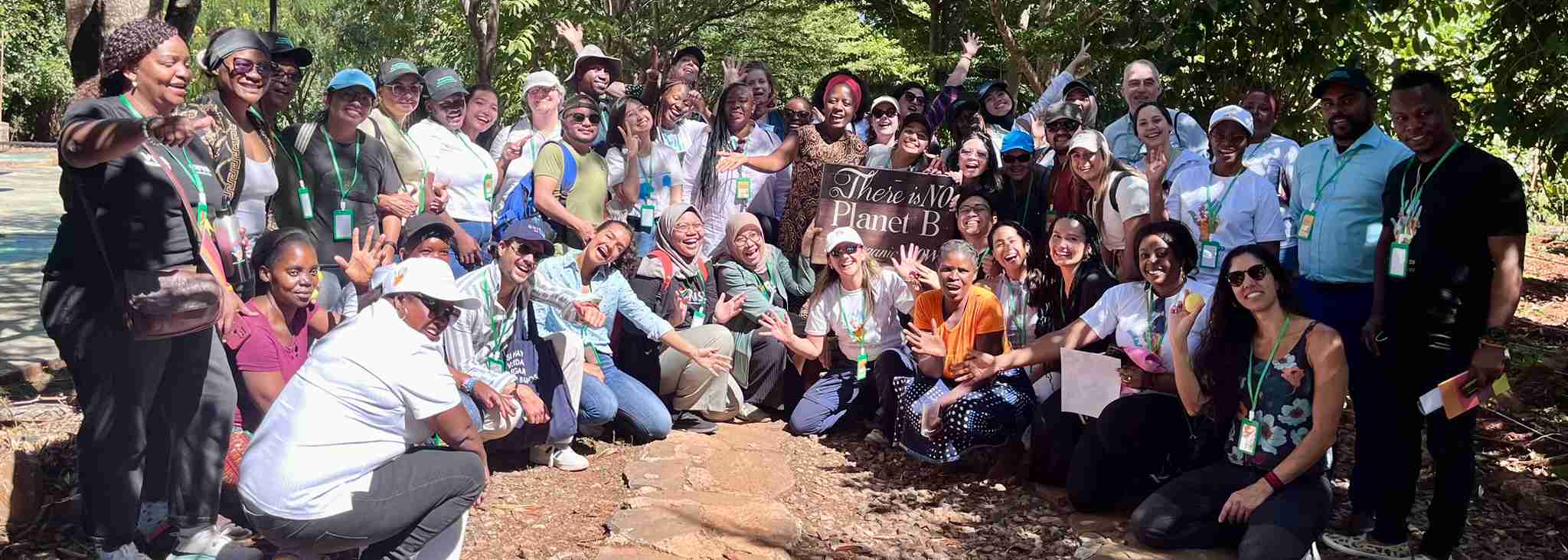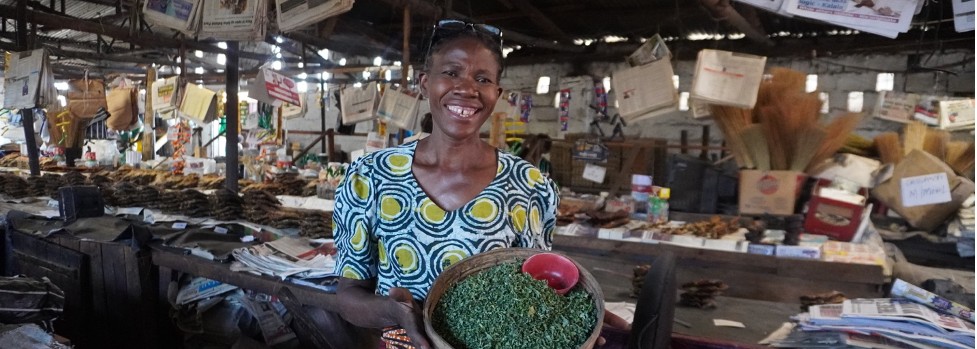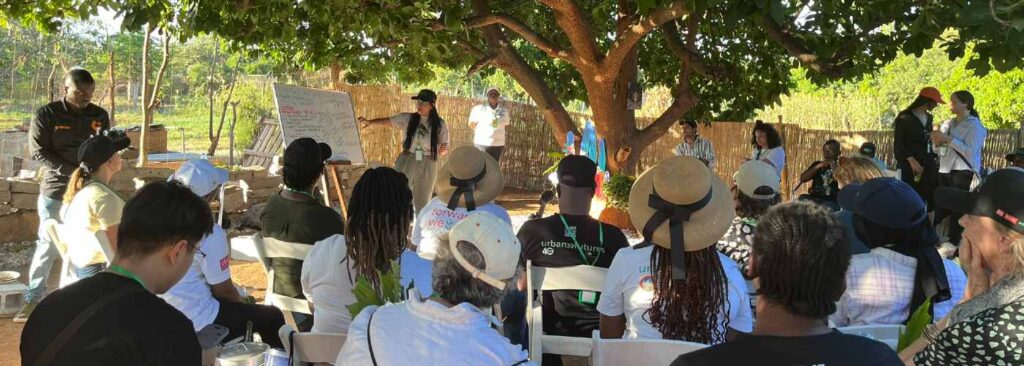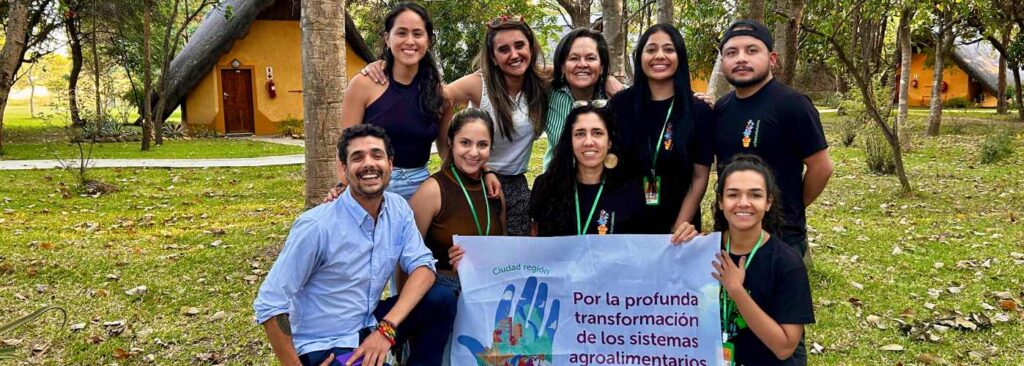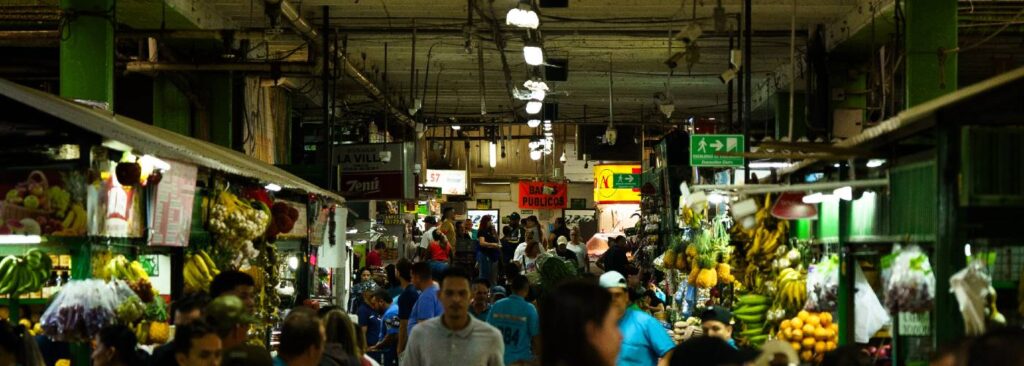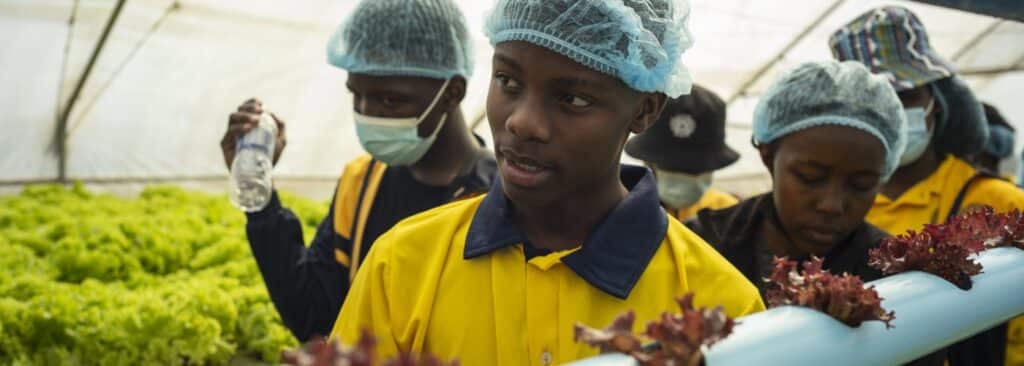Planting seeds of change at the Urban Futures meeting in Zambia
September 13, 2024
Urban food systems are increasingly recognized as critical to sustainable development, climate resilience, and social equity. At the heart of this transformation is our Urban Futures program, which held its first post-inception meeting in Zambia earlier this year. Participants from Latin America, Southern Africa, and Indonesia gathered for more than just dialogue. It was about immersive learning, collaboration, and setting a clear path for the future.
Immersive learning from the ground up
This meeting didn’t hole up in a hotel. Participants visited farms, markets, and agricultural training centers, gaining firsthand insight into agroecological practices and market dynamics. For many, these experiences were transformative: not only educating them, but showing them how to implement similar practical solutions once back in their own communities.
“Despite our different challenges, we all envision cities where people have access to proper nutrition and where everyone’s voice is heard.”
Kudawashe Zombe, Urban Futures’ project officer for Southern Africa, emphasized the value of these experiences, especially for youth involved. “The field trips provided young people the opportunity to learn from practical experiences. They not only saw how others are implementing innovative solutions but also began to see their own potential in scaling up their enterprises,” Kudawashe explained. The visits also showed the need for financial training, as many young entrepreneurs face challenges in expanding their businesses due to limited resources and knowledge.
Innovative partners work on urban food systems
African Food Revolution (AFR) is one of the organizations supported by Urban Futures in Bulawayo, Zimbabwe. AFR provides expertise and analysis of traditional food production and promotes the consumption of local indigenous foods. They aim to develop a new type of African village that is environmentally and nutritionally sustainable through the amplification of traditional food systems. They work with young entrepreneurs in the production of indigenous fruit juices and with young people from rural communities in Lupane in gathering baobab, snot apple, tamarind, ginger, umyi, umviyo fruits and imbiza (traditional herbs).
Another Urban Futures partner, the Bulawayo Vendors and Traders Association, together with the Lupane State University, designed a six-week Green Skills Training course. The course targets young people between 18 and 35 in Bulawayo who want to venture into climate mitigation and adaptation solutions, green enterprises, and green jobs.
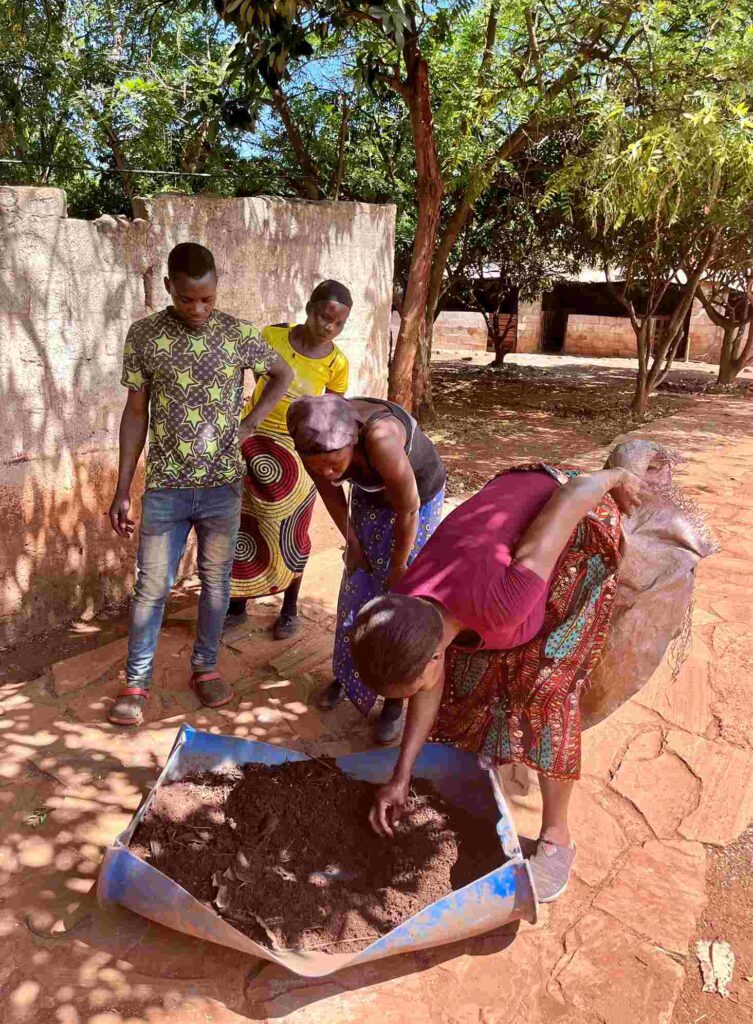
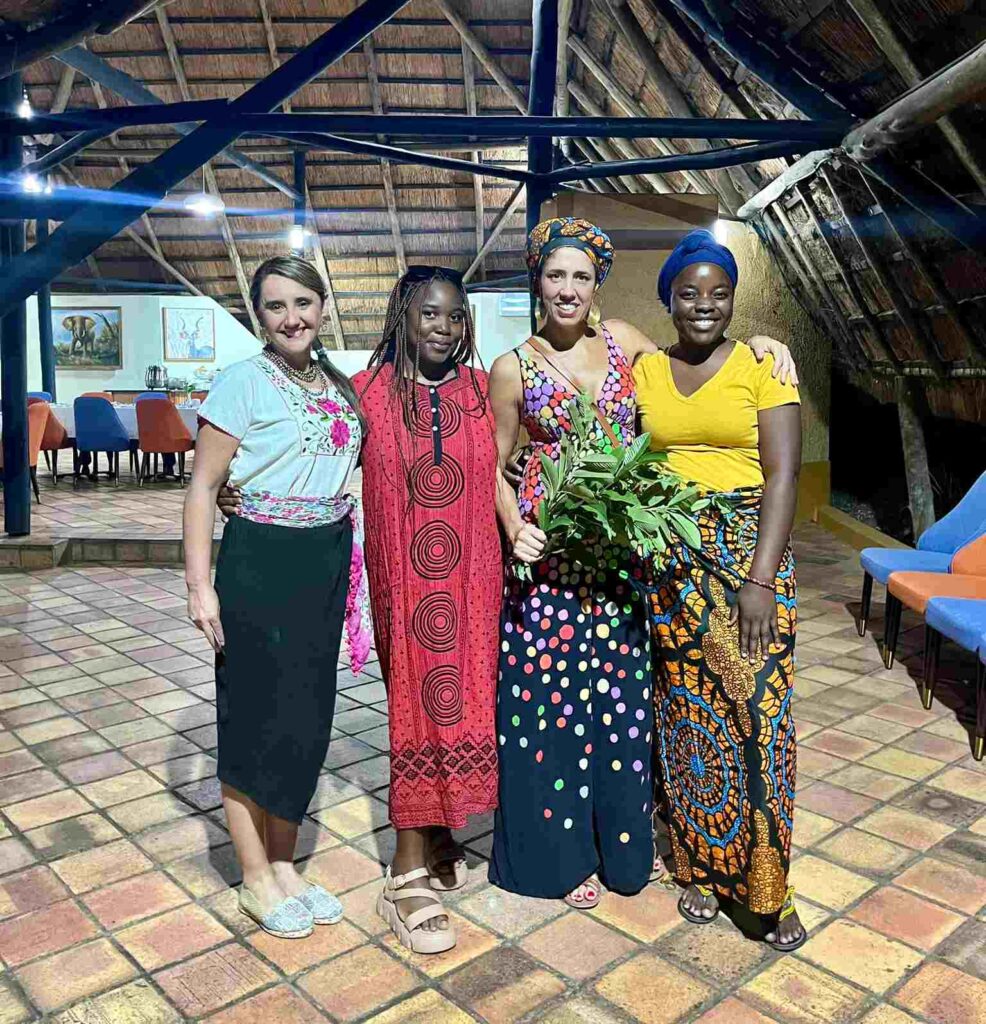
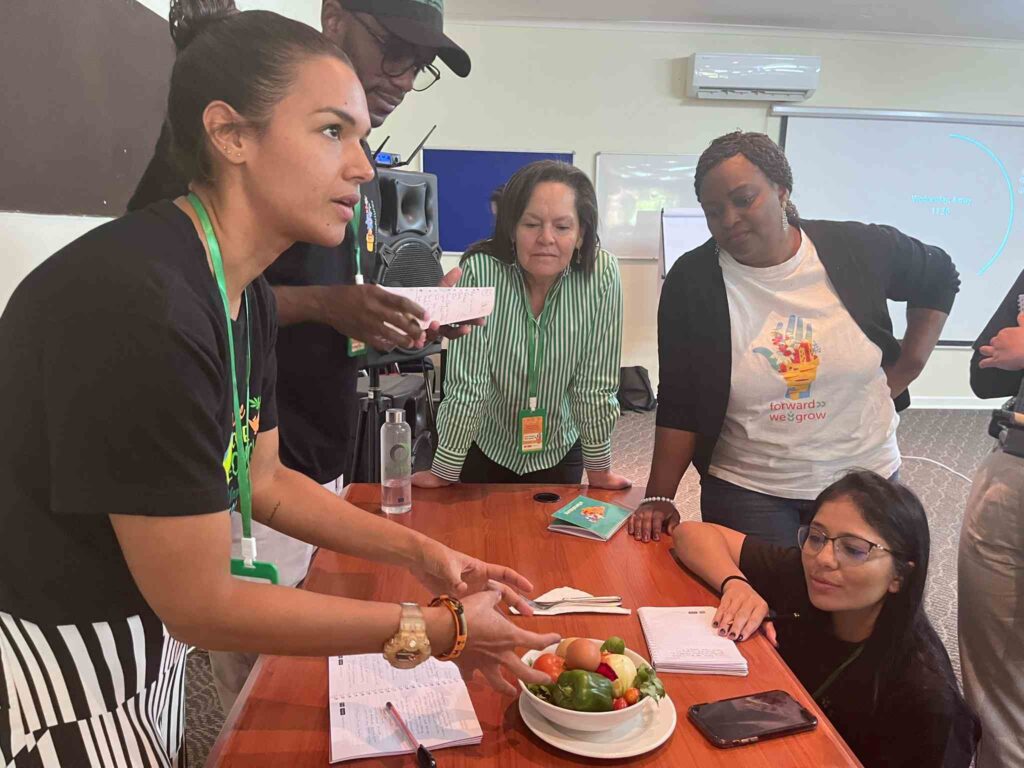
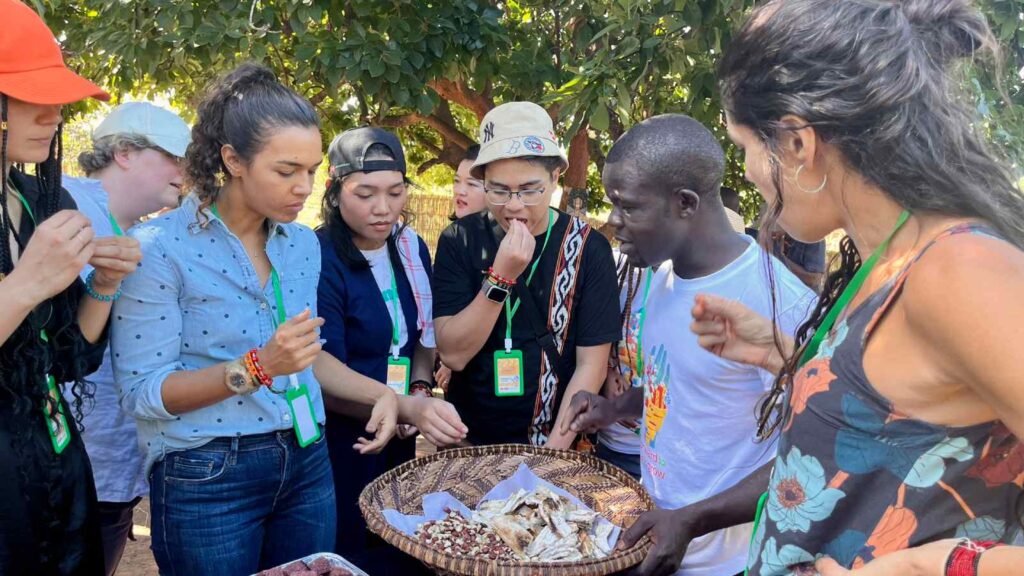
Perspectives from participants
Theresia “Trisi” Kinanti Dewi, a Humanis Linking and Learning and Communications Officer in Indonesia, shared her thoughts on the challenges and opportunities in engaging youth from different regions. “In West Manggarai, many young people are moving away in search of opportunities. We’re trying to get them to be more vocal and work with older groups to bridge the generational gap. If these generations work together, that’ll make sure that traditional knowledge isn’t lost, while encouraging innovation,” she noted.
Melony from Colombia reflected on the inclusive nature of the meeting. “Despite our different challenges [in the different regions], we all envision cities where people have access to proper nutrition and where everyone’s voice is heard,” she said. This sense of shared purpose is ensuring that the diverse perspectives of its participants are all central to its strategy.
Cinderella from Zimbabwe was particularly inspired by the Kasisi Agricultural Training Centre. “I liked the diverse curriculum that looked into several aspects of the food systems, from production to processing and product development. I plan on using similar methods for organic waste to produce fertilizer,” she explained.
Rebecca from Indonesia aptly summarized the collective spirit: “I would like to push for more youth participation in preserving local crop varieties and food recipes in the program’s multi-stakeholder platform. It’s about ensuring that our food systems are not only sustainable but also reflective of our cultural heritage.”

